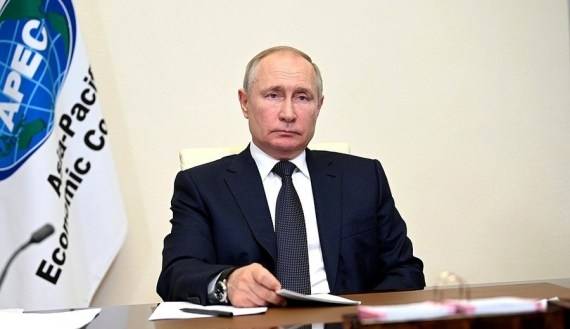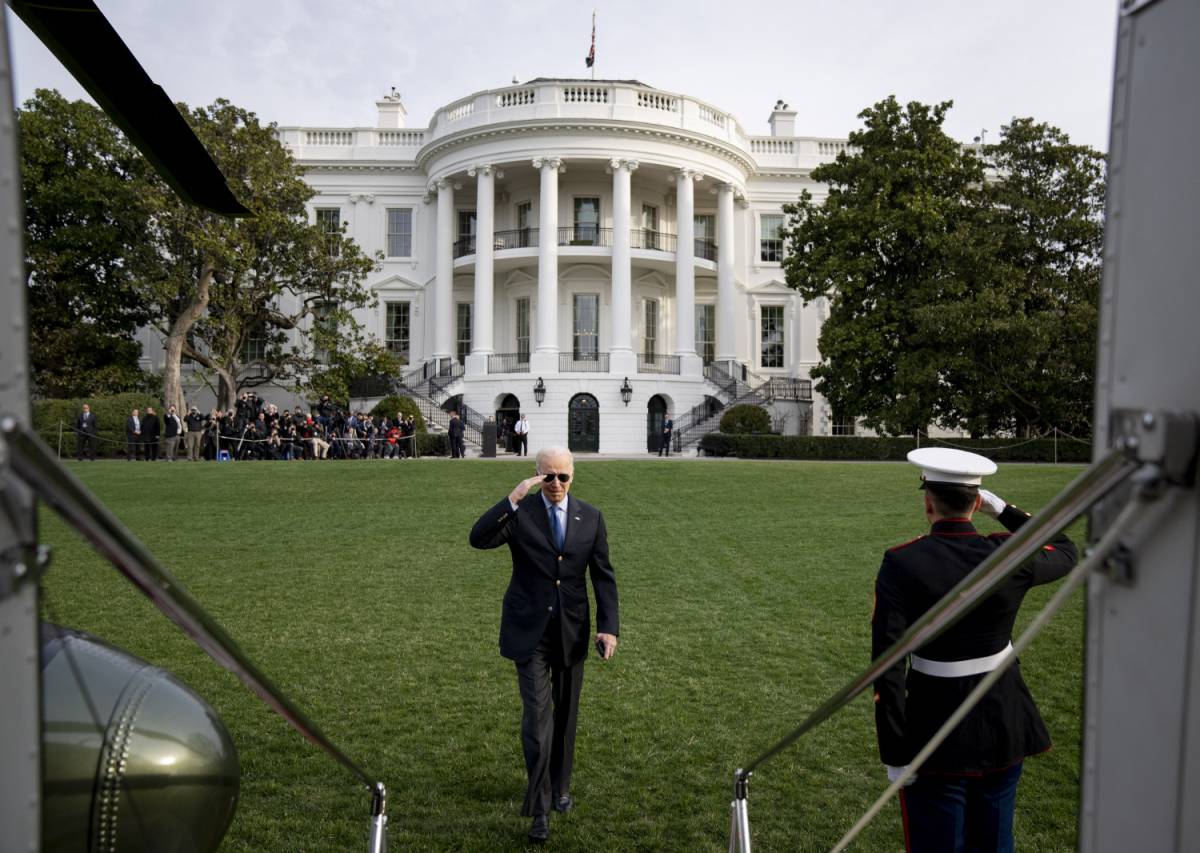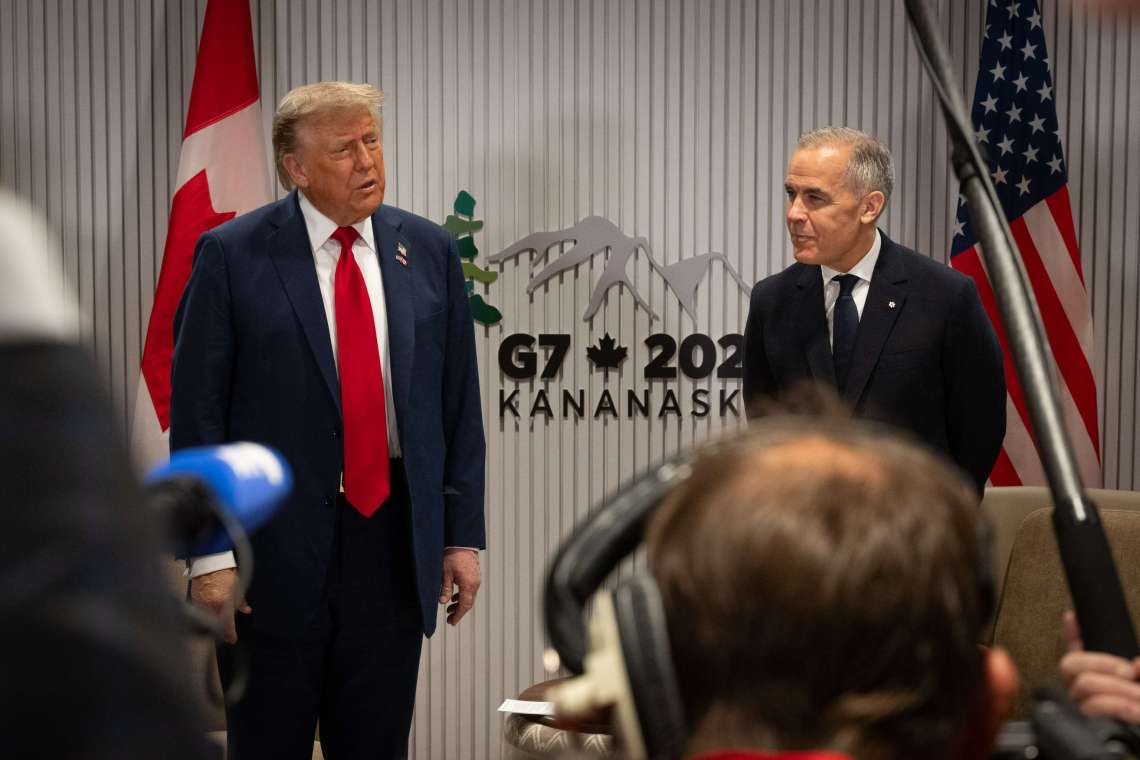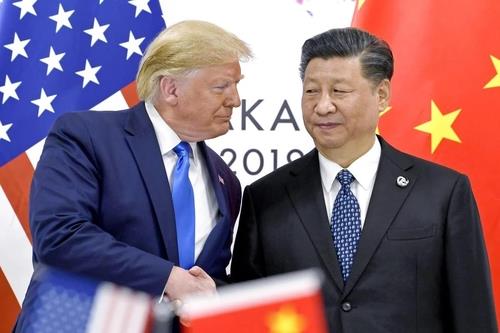President’s ad-libbed words — “For God’s sake, this man cannot remain in power” — caught even US advisors off guard.
President Joe Biden’s apparent call for Vladimir Putin’s exit reverberated instantly around the world, sparking an administration rush to course-correct — and risks scrambling US efforts to rally a united front on the Ukraine conflict.
President Biden’s comment that the Russian president “cannot remain in power” — delivered in Warsaw at the close of three days of marathon diplomacy — was termed “a horrendous gaffe” by one Republican senator.
A senior US analyst said it could have the effect of lengthening the war.
And even France’s president warned such language could “escalate” a conflict the United States and its NATO allies have sought at all costs to contain, and undercut Western efforts to help suffering Ukrainians.
The remark came as Biden wound up a forceful speech on Saturday capping what had been a widely-praised European visit, aimed at presenting a determined front against Russia’s invasion.
His ad-libbed words — “For God’s sake, this man cannot remain in power” — caught even US advisors off guard.
The White House sprung immediately into action, clarifying within minutes that Biden was not advocating “regime change” in Russia. When asked by reporters Sunday if that was what he was calling for, the president replied: “No.”
But the comments by President Biden — who hours earlier called Putin a “butcher” — drew predictable fury from Moscow, raised eyebrows in allied countries, and sent the president’s advisors into high gear to mollify the criticism.

No ‘regime change’
US Secretary of State Antony Blinken, in Jerusalem, joined in forcefully denying Biden was calling for President Putin’s ouster.
President Biden’s point, Blinken said, was that “Putin cannot be empowered to wage war, or engage in aggression against Ukraine, or anyone else.”
The choice of Russia’s leader, Blinken said, is “up to the Russians.”
The administration sent out the US ambassador to NATO, Julianne Smith, to underscore the same message — stating across multiple TV networks that “the US does not have a policy of regime change towards Russia, full stop.”
President Biden’s comments, Smith told CNN’s “State of the Union,” were “a principled human reaction to the stories that he had heard” during an emotional visit with Ukrainian refugees.
But President Emmanuel Macron of France, a close US ally who has spoken frequently with Putin since the invasion, warned the West not to “escalate in words or actions” — or risk hampering vital humanitarian efforts, including hopes of evacuating the devastated city of Mariupol.
As noted by a senior Republican lawmaker, Senator Jim Risch, the remarks ran 180-degrees counter to the Biden administration’s constant efforts until now to stop the conflict from escalating.
“There’s not a whole lot more you can do to escalate than to call for regime change,” he told CNN.
Reputation for gaffe
President Biden has a decades-long reputation for unfortunate off-the-cuff remarks — newspapers have previously listed his “top 10 gaffes of all time” — and Risch, the ranking Republican on the Senate Foreign Relations Committee, said the president had again shot himself in the foot.
Biden delivered “a good speech,” Risch told CNN, with “a horrendous gaffe right at the end of it.”
“My gosh, I wish they would keep him on script.”
Not everyone saw the remark, however undiplomatic, as carrying an unstated threat — or in fact as a gaffe at all.
Oksana Markarova, Ukraine’s ambassador to the United States, told NBC’s “Meet the Press”: “Anyone who’s a war criminal, who attacks a neighboring country, who’s doing all these atrocities… definitely cannot stay in power in a civilized world.”
And Michael McFaul, a former US ambassador to Russia, said on Twitter that Biden’s words needed to be read with nuance. “Biden expressed what billions around the world and millions inside Russia also believe. He did not say that the US should remove him from power. There is a difference.”













